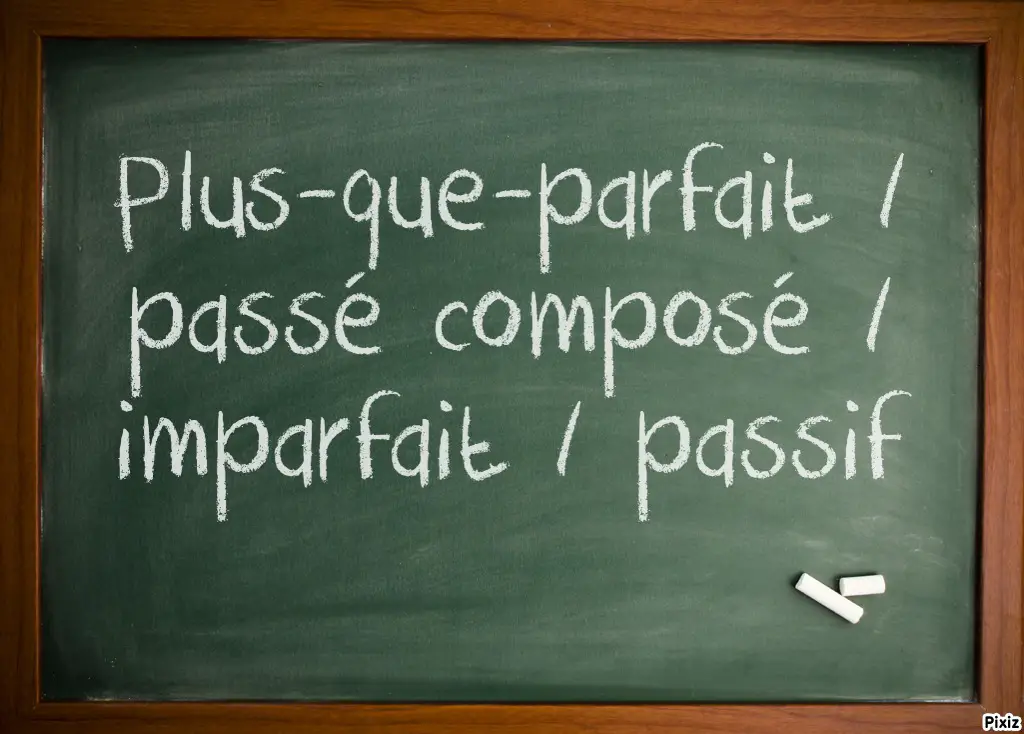

- #Apprendre plus que parfait how to
- #Apprendre plus que parfait full
- #Apprendre plus que parfait free
I like to use material from the internet (videos, article etc.) to introduce a theme which leads to a lesson and a conversation. I give Skype lessons to people who need or want to improve their French language.
#Apprendre plus que parfait free
Monday and/or Wednesday from 17:30 to 18:30 (French time).ĭon’t know your level? Ask for a free level test. This option saves you at least 10 euros per lesson on Colanguage. An article or video to watch before the lesson and a conversation with personalized corrections during the lesson. Join a small group of learners of 2 or 3 for conversation lessons with me. I am holding a Master Degree in FLE (Teaching French as a Foreign Language).

I am a French Teacher with experiences with adults and teenagers in Public Education (USA) and Language Schools. They designate an action. The past participle conjugated with the auxiliary 'avoir' does not agree with the subject. It agrees with the Direct Object Pronoun placed before the verb. = He wanted me to be present.īut nobody talks like this in modern spoken French (except very rarely as a joke.) Use the subjunctive present instead: Il voulait que je sois présent.Others verbs that use the auxiliary verb 'être'. It’s the subjunctive, but used for the past. Meanwhile, l’imparfait du subjonctifis the most formal French tense. However, the occasions to use it don’t come up that often, compared to imparfait or passé composé. = passé composé but the auxiliary is in the imperfect past “Être” / “avoir” in the imperfect + past participle Le plus-que-parfait (literally “ more than perfect”!) has a strange and poetic name, but it’s not that complex.
#Apprendre plus que parfait how to
I made a whole lesson on this topic, a long time ago:Ĭlick here to learn more: How to Choose a Past Tense in French

The explanation is complex, but it doesn’t really matter: think about it the same way you think about “ went” vs “ was going.” (= Now it’s done, but that happened at that time.) (= Exactly two years ago, you were on your way between here and France, remember?) = Two years ago, you were going to France. (= So much that now I’m done with it, now it’s done.) J’ai beaucoup écouté cette chanson en 2004. = I was listening to that song a lot in 2004. J’écoutais beaucoup cette chanson en 2004. It usually comes in l’imparfait, but it can also be passé composé, depending on intent: Meanwhile, there’s an ambiguity over long actions in the past. Quand elle a commencé, elle était optimiste. Sometimes, le passé composé is used to cut a longer action in l’imparfait, especially with quand (= when) : = I started to learn French in middle school. J’ai commencé à apprendre le français au collège. → There was a day where we packed our bags and left our home to go there. In detail now, we use le passé composéfor past actions or events with a definite starting point, and/or ending point.
#Apprendre plus que parfait full
Next week, you’ll get a full lesson on the passé composé, its conjugation, exceptions and special cases. French schoolchildren can take a long time to master this tense, when we first learn about it! It’s not that hard, especially since it’s so close to the present perfect in its construction. That’s the main technique you can use to quickly decide whether to use the passé composé or l’imparfait.īoth tenses are very common in both written and especially spoken French. Meanwhile, l’imparfait is more like the progressive past / continuous past.Įn 2012, je vivais en France.

J’ai vécu en France en 2012 = I lived / I’ve lived in France in 2012. It’s used for specific actions, taking place at a precise time.īut really, think of it as the English simple past, and present perfect. Finally, le passé composé (= “compound past”) is built with “être” or “avoir” in the present, and a past participle.įor instance: J’ai mangé = I ate.


 0 kommentar(er)
0 kommentar(er)
